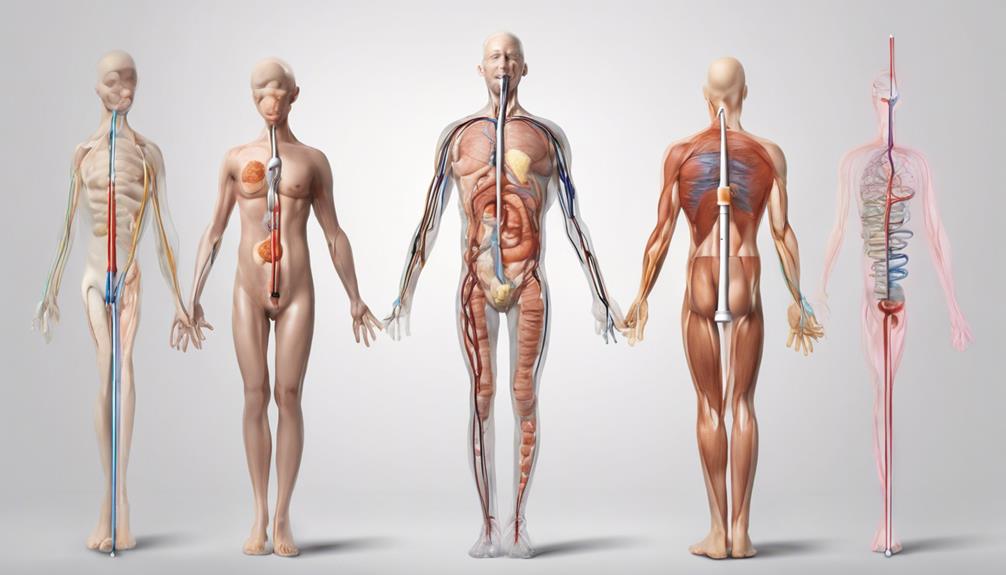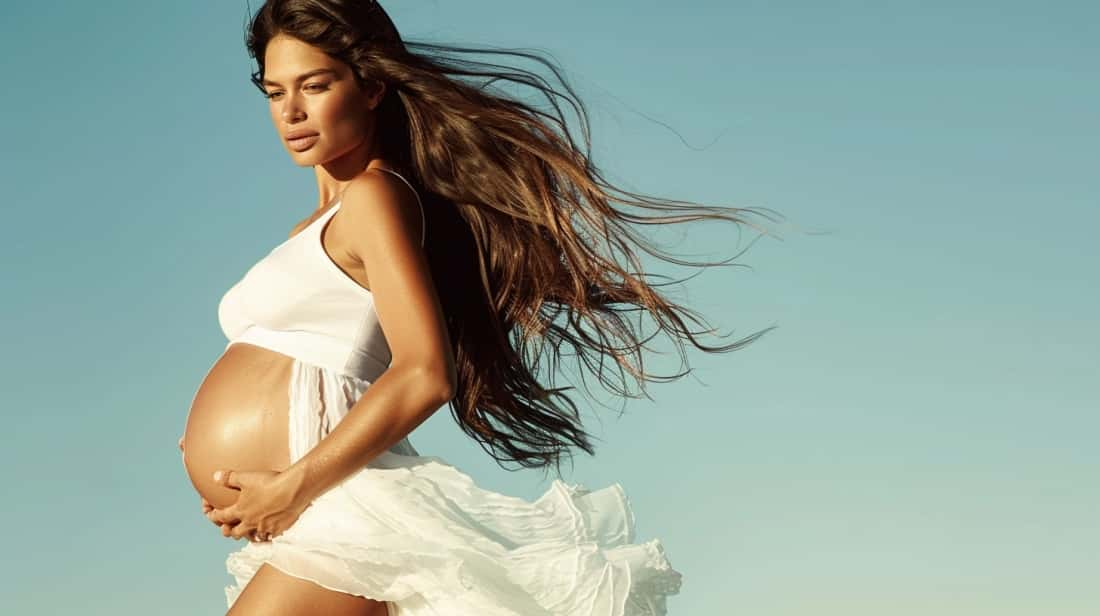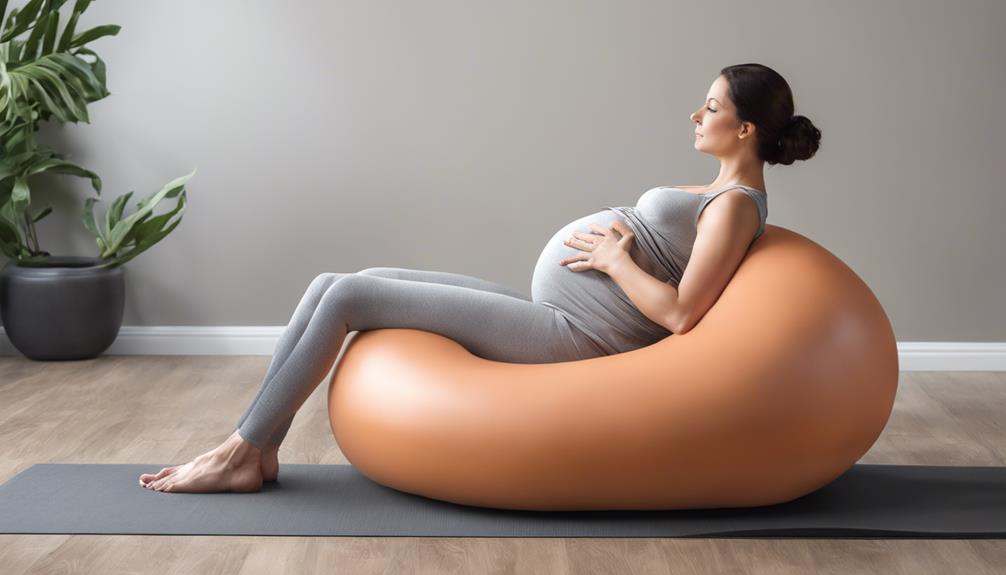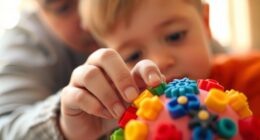We’ve all been cautioned about the risk of falling during pregnancy, particularly in the last trimester when maintaining balance can become challenging. However, what steps should you actually take if you end up taking a fall onto your knees?
It's a scenario that can spark worry and uncertainty, leaving many pregnant individuals wondering about the best course of action.
Stay tuned to discover the essential steps to take and the precautions to ponder when faced with this potentially precarious situation.
Key Takeaways
- Assess severity and seek medical attention promptly.
- Watch for signs of concern like abdominal pain or bleeding.
- Importance of seeking medical advice for overall well-being.
- Manage pain with ice, elevation, braces, and medical guidance.
Immediate Actions to Take After Falling
After falling on your knees in the third trimester, it's important to promptly assess the severity of the fall and check for any immediate injuries or pain. Take a moment to evaluate how you feel physically and mentally. If you notice any immediate injuries or experience pain, it's important to seek medical attention promptly.
Additionally, monitor your baby's movements closely following the fall. Decreased fetal activity could be a cause for concern, so pay attention to any changes in your baby's usual patterns and contact your healthcare provider if you notice anything unusual.
Don't hesitate to reach out to your healthcare provider to discuss the fall and any symptoms you may be experiencing. They can provide you with guidance on what steps to take next. Keep an eye out for signs of vaginal bleeding or contractions, as these could indicate a more serious issue. Your healthcare provider may have specific recommendations or instructions for further evaluation or monitoring, so be sure to follow their advice closely for the well-being of you and your baby.
Signs of Concern After a Fall

After a fall on your knees during the third trimester, it's important to monitor your body for signs of concern, particularly persistent abdominal pain or vaginal bleeding. These symptoms could indicate a more significant issue that requires immediate attention from your healthcare provider.
It's also critical to watch for any fluid leakage, changes in fetal activity, or experiencing contractions post-fall. If you notice a decrease in your baby's movements, this could be a cause for concern and should prompt you to seek medical advice promptly.
Additionally, unusual back pain, difficulty breathing, or dizziness after a fall are signs that you shouldn't ignore. Your well-being and that of your baby are of utmost importance, so always err on the side of caution and contact your healthcare provider if you experience any of these symptoms.
Importance of Seeking Medical Attention
Seeking immediate medical attention after a fall on your knees in the third trimester is important to guarantee the well-being of both you and your baby. Here are some reasons why seeking medical attention is essential:
- Assessment of Potential Injury: Medical professionals can evaluate any harm caused by the fall, ensuring both you and your baby are safe.
- Monitoring Symptoms: Prompt medical attention is essential if you experience contractions, bleeding, or decreased fetal movements post-fall.
- Fetal Well-being: Healthcare providers may suggest monitoring the baby's health through tests like fetal heart rate monitoring or ultrasound.
- Ensuring Safety: Communicating any concerns with your healthcare provider post-fall is important for the overall safety and health of you and your baby.
Tips for Managing Pain and Discomfort

If you have experienced a fall on your knees in the third trimester, managing pain and discomfort becomes essential for your well-being and comfort. To alleviate the discomfort, applying ice packs can help reduce swelling and relieve pain in the affected knee. Essential your leg is vital as it aids in reducing inflammation and promotes better circulation.
Utilizing supportive knee braces or wraps can stabilize the knee joint, providing the necessary comfort and support. Engaging in gentle stretching and range of motion exercises can maintain flexibility and prevent stiffness, aiding in your recovery process.
It's imperative to consult a healthcare provider for a proper diagnosis and treatment recommendations to address any underlying issues effectively. By following these tips and seeking professional guidance, you can proactively manage pain and discomfort resulting from a fall during pregnancy's third trimester.
Precautions to Prevent Future Falls
To prevent future falls, guaranteeing proper footwear with good grip is essential for maintaining stability and preventing slips. Walking on stairs? Use handrails for balance. Avoid heavy objects to keep your center of gravity steady. Clear your home of obstacles to reduce tripping risks.
Want to enhance balance further? Consult your health care provider for postural stability exercises. Loose joints during pregnancy make falls more likely, so protective layers like supportive shoes are a must. Weight gain can also affect your center of gravity, increasing the risk of falls. Remember, if you do fall, seek immediate help to ensure both your safety and your baby's well-being.
Frequently Asked Questions
What Happens if You Fall During Third Trimester?
If we fall during the third trimester, immediate medical evaluation is vital to assess any potential risks to the baby and mother. Monitoring for signs of preterm labor, bleeding, or reduced fetal movement is important post-fall.
What Should I Look for After a Fall During Pregnancy?
If we fall during pregnancy, what should we look for afterward? Signs of bleeding, contractions, or abdominal pain, changes in baby movements, or persistent discomfort. Contact healthcare immediately for any unusual symptoms. Baby's well-being is top priority.
How Can a Fall Affect a Baby?
A fall during pregnancy can impact the baby by potentially causing injuries or distress, requiring immediate medical evaluation for monitoring. The amniotic fluid and abdominal muscles offer some protection, but any fall warrants thorough assessment.
Can a Fall Cause Placental Abruption?
Yes, a fall can cause placental abruption, a dangerous condition where the placenta detaches prematurely. This increases risks for both the mother and baby. Immediate medical help is crucial. Let's prioritize safety and seek urgent care.
Conclusion
To sum up, if you find yourself falling on your knees during the third trimester of pregnancy, remember to seek immediate medical attention and not brush it off.
It's always better to be safe than sorry, especially when it comes to the well-being of you and your baby.
Taking precautions and being proactive can make all the difference in ensuring a smooth and healthy pregnancy.
Remember, an ounce of prevention is worth a pound of cure.









